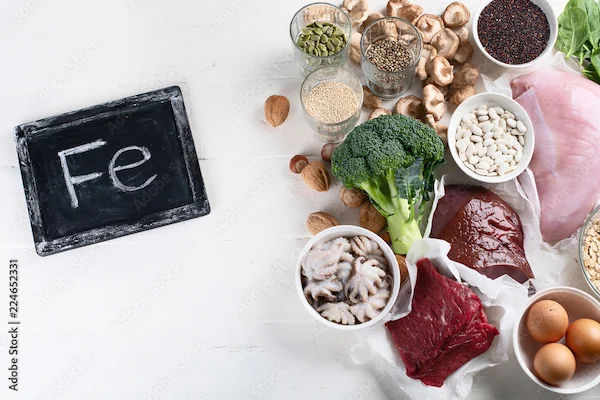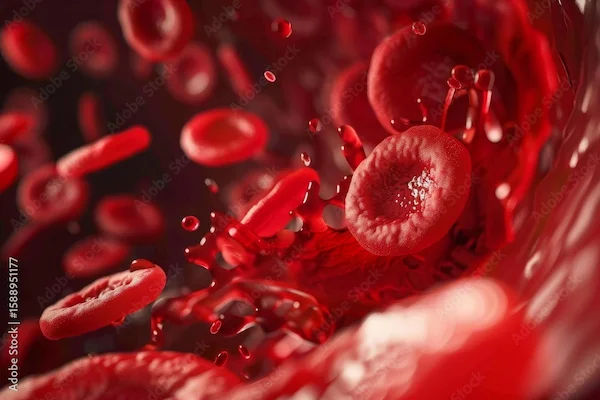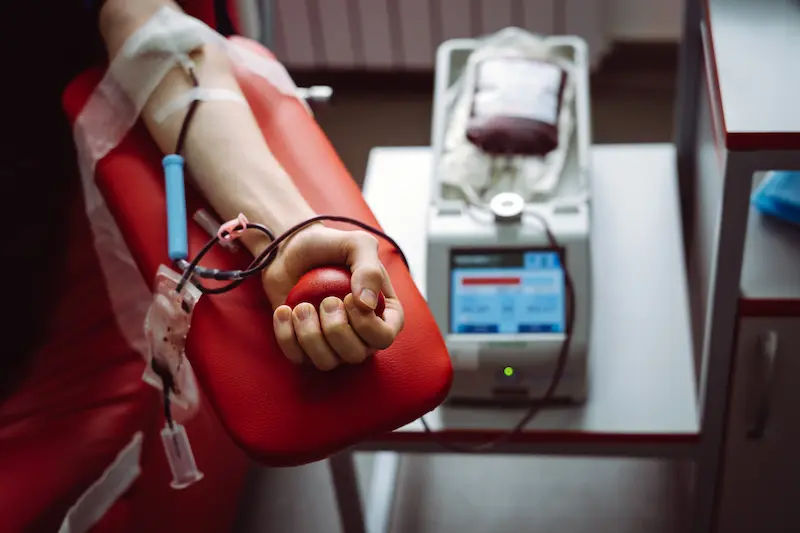Pomegranates for Anaemia. How They Boost Iron Naturally
Can pomegranates help anaemia? Learn how they support iron absorption, the best iron-rich foods, and safe, evidence-based tips to raise low iron.

Written by Dr. Vasanthasree Nair
Reviewed by Dr. Rohinipriyanka Pondugula MBBS
Last updated on 13th Jan, 2026

Introduction
Anaemia is common worldwide and often caused by low iron. If you’ve heard about a “pomegranate anemia” connection, you might wonder whether this fruit can raise your iron. The short answer: pomegranates are not an iron-rich food, but they can support your body’s iron status when you use them smartly, especially alongside other iron-rich choices and good habits that improve absorption. Here’s what the science and trusted medical sources say.
Anaemia 101: What It Is And Why Iron Matters?
Anaemia happens when your body doesn’t have enough healthy red blood cells to carry oxygen. Symptoms can include tiredness, shortness of breath, pale skin, headaches, dizziness, and brittle nails. There are many types of anemia. The most common is iron-deficiency anemia, which occurs when you don’t have enough iron to make haemoglobin, the oxygen-carrying protein in red blood cells.
Common Causes Of Iron Deficiency
- Low dietary iron intake or poor absorption
- Higher iron needs during growth, menstruation, or pregnancy
- Blood loss (e.g., heavy periods, gastrointestinal bleeding)
- Certain conditions that affect absorption (e.g., coeliac disease, inflammatory bowel disease)
If you suspect anemia, see a clinician. A simple set of blood tests, including complete blood count (CBC), ferritin, iron, and transferrin saturation, can confirm iron deficiency and guide treatment.
Pomegranate And Anaemia: What The Science Really Says
- Pomegranates are not high in iron. Compared with true iron-rich food sources (see below), pomegranates provide only small amounts of iron.
- Where pomegranates can help is their vitamin C content. Vitamin C helps your body absorb non-heme iron (the form found in plant foods and fortified foods) when eaten at the same meal.
- Pomegranates also contain antioxidants (polyphenols). While some polyphenols in beverages like tea and coffee can reduce iron absorption, vitamin C is a strong enhancer and can counteract inhibitors. Overall, it’s reasonable to include pomegranate as part of a varied diet that supports iron status, but don’t rely on it alone to correct low iron.
Bottom line on the pomegranate anemia question:
- Enjoy pomegranate as part of meals that also include iron-rich ingredients.
- Think of pomegranates as a helpful supporting player, not a standalone fix for iron-deficiency anemia.
Consult a Top General Physician
Iron-rich Food: What to Prioritise?
To raise or maintain healthy iron levels, focus on proven iron sources and smart pairings.
Best Sources Of Iron
Heme iron (easier for the body to absorb):
- Lean red meat, beef, lamb
- Poultry (especially dark meat), turkey
- Fish and shellfish (e.g., sardines, tuna, clams)
- Non-heme iron (plant-based and fortified foods):
- Beans, lentils, chickpeas, soybeans, tofu, tempeh
- Pumpkin seeds, sesame seeds, cashews
- Dark leafy greens (spinach, kale), broccoli
- Iron-fortified cereals, oats, and breads
- Quinoa, amaranth
- Dried fruits (apricots, raisins)
Vitamin C Boosts Absorption
Pair non-heme iron foods with vitamin C to increase absorption. Good vitamin C sources include:
- Pomegranate arils and juice
- Citrus fruits (oranges, grapefruit), strawberries, kiwi
- Bell peppers, tomatoes, broccoli
- Foods and habits that can reduce absorption (especially around iron-rich meals)
Tea And Coffee (Polyphenols)
- Large amounts of calcium at the same meal (e.g., dairy or calcium supplements)
- Some high-fibre bran products and phytates (in raw legumes and whole grains; soaking, sprouting, or cooking reduces this effect)
How To Use Pomegranate To Support Iron Status?
Pomegranates add colour, flavour, and vitamin C to meals that contain iron. Try these ideas:
- Chickpea and pomegranate salad: Toss chickpeas (non-heme iron) with pomegranate arils, parsley, lemon juice (vitamin C), olive oil, and cumin.
- Spinach, beef, and pomegranate bowl: Layer sautéed spinach (non-heme iron) and lean beef (heme iron), then sprinkle pomegranate seeds and a squeeze of lemon.
- Lentil, herb, and pomegranate tabbouleh: Combine cooked lentils (iron), chopped herbs, tomatoes, and pomegranate arils; dress with lemon and olive oil.
- Fortified cereal with yoghurt and pomegranate: Check the label for iron-fortified cereal and top with pomegranate; have fruit or a small glass of orange juice alongside to add vitamin C. If using dairy, consider spacing calcium-rich foods away from your highest-iron meal if iron levels are low.
- Roasted vegetables with pomegranate molasses: Roast carrots and cauliflower; finish with a drizzle of pomegranate molasses and fresh pomegranate seeds. Add a side of grilled chicken or fish for heme iron.
Can You Fix Iron-Deficiency Anemia With Diet Alone?
It depends on the cause and severity:
- Mild iron deficiency from low intake may improve with diet changes that emphasise iron-rich food and vitamin C pairings.
- Moderate to severe iron-deficiency anemia often requires iron supplements or, in some cases, intravenous iron, always guided by a clinician.
- If bleeding, malabsorption, pregnancy, or another medical issue is the root cause, that must be addressed as well.
Safe, Practical Tips To Raise Iron Levels
Build Balanced Meals:
- Include one iron-rich source at each main meal.
- Add a vitamin C-rich food (such as pomegranate) to help absorb non-heme iron.
Time Your Beverages:
- Enjoy tea and coffee at least 1–2 hours away from iron-rich meals or iron supplements.
Consider Cooking Techniques:
- Soak, sprout, or thoroughly cook legumes and grains to reduce compounds that inhibit iron absorption.
- Cooking with cast-iron cookware can slightly increase the iron content of some acidic, liquid-based dishes.
If Prescribed Iron Supplements:
- Take as directed by your clinician, often on an empty stomach or with vitamin C for better absorption.
- Avoid taking iron at the same time as calcium supplements, antacids, tea, or coffee.
- Expect common side effects such as constipation or stomach upset; ask about slow-release or alternate-day dosing if needed.
When To Speak With A Clinician?
- You have symptoms of anemia (fatigue, shortness of breath, paleness, rapid heartbeat).
- You’re pregnant, planning pregnancy, or have heavy menstrual bleeding.
- You follow a vegan or vegetarian diet and are unsure you’re getting enough iron.
- You have gastrointestinal symptoms, a history of ulcers, coeliac disease, inflammatory bowel disease, or unexplained bleeding.
- Your blood tests show low haemoglobin or ferritin levels.
The Take-Home Message
- Pomegranates are nutritious and contain vitamin C that can help your body absorb non-heme iron. They are not an iron-rich food and won’t cure iron-deficiency anemia on their own.
- Use pomegranate as a bright, tasty addition to meals built around proven iron sources.
- If you suspect anemia, get tested and follow medical advice. Diet can help, but the right treatment depends on your specific cause and lab results.
Consult a Top General Physician
Consult a Top General Physician

Dr. Aakash Garg
Gastroenterology/gi Medicine Specialist
12 Years • MBBS, DNB (Medicine), DrNB (Gastroentrology).
Bilaspur
Apollo Hospitals Seepat Road, Bilaspur
(150+ Patients)

Dr. S Vijayaraghavan
General Physician/ Internal Medicine Specialist
31 Years • MD (Gen. Med.)
Chennai
Apollo Speciality Hospitals OMR, Chennai
(175+ Patients)

Dr. Ashita Kuruvilla
General Physician/ Internal Medicine Specialist
7 Years • MBBS
East Midnapore
VIVEKANANDA SEBA SADAN, East Midnapore

Dr Chetan Shirakanahalli
General Physician/ Internal Medicine Specialist
10 Years • MBBS,MD INTERNAL MEDICINE, FELLOWSHIP IN DIABETOLOGY
Bengaluru
Apollo Medical Center, Marathahalli, Bengaluru
(100+ Patients)

Dr Aakash Andgi
General Physician/ Internal Medicine Specialist
9 Years • MBBS MD
Bengaluru
Apollo Clinic, JP nagar, Bengaluru
Consult a Top General Physician

Dr. Aakash Garg
Gastroenterology/gi Medicine Specialist
12 Years • MBBS, DNB (Medicine), DrNB (Gastroentrology).
Bilaspur
Apollo Hospitals Seepat Road, Bilaspur
(150+ Patients)

Dr. S Vijayaraghavan
General Physician/ Internal Medicine Specialist
31 Years • MD (Gen. Med.)
Chennai
Apollo Speciality Hospitals OMR, Chennai
(175+ Patients)

Dr. Ashita Kuruvilla
General Physician/ Internal Medicine Specialist
7 Years • MBBS
East Midnapore
VIVEKANANDA SEBA SADAN, East Midnapore

Dr Chetan Shirakanahalli
General Physician/ Internal Medicine Specialist
10 Years • MBBS,MD INTERNAL MEDICINE, FELLOWSHIP IN DIABETOLOGY
Bengaluru
Apollo Medical Center, Marathahalli, Bengaluru
(100+ Patients)

Dr Aakash Andgi
General Physician/ Internal Medicine Specialist
9 Years • MBBS MD
Bengaluru
Apollo Clinic, JP nagar, Bengaluru
More articles from Anemia
Frequently Asked Questions
Are pomegranates an iron-rich food?
No. Pomegranates contain only small amounts of iron. Their main benefit for iron status is vitamin C, which can help your body absorb non-heme iron when eaten with iron-rich meals.
Can pomegranates cure iron-deficiency anemia?
No single food can cure anemia. Pomegranates can support iron absorption, but correcting iron-deficiency anemia often requires a diet rich in iron, sometimes iron supplements, and treatment of any underlying cause, guided by a clinician.
How can I best use pomegranate if I have low iron?
Add pomegranate arils or a small glass of pomegranate juice to meals that include iron sources like beans, lentils, tofu, spinach, lean meat, or iron-fortified cereal. Pairing with other vitamin C foods (citrus, peppers) also helps.
What are the best iron-rich food options to raise iron?
Heme iron sources (easier to absorb) include lean red meat, poultry, and fish. Plant sources include beans, lentils, tofu, pumpkin seeds, spinach, and iron-fortified cereals. Combine them with vitamin C foods for better absorption.
How do I know if I need an iron supplement?
Don’t self-prescribe. Ask your clinician for blood tests (e.g., ferritin, haemoglobin). If iron deficiency is confirmed, your clinician will advise the right dose, form, and timing, and check for underlying causes.
.webp)



